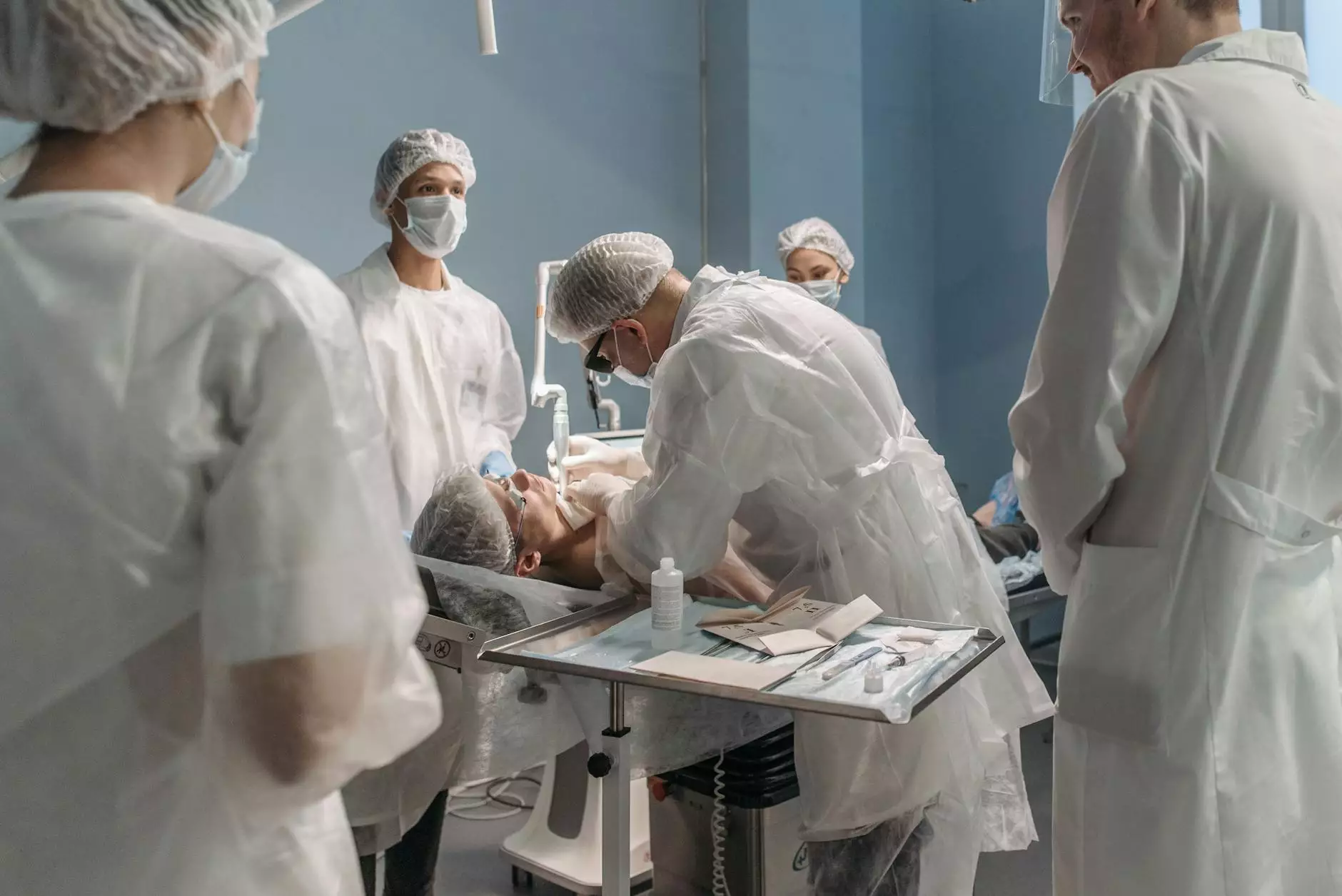Understanding the Role of a Thoracic Surgeon in Modern Medicine

The field of medicine is expansive, encompassing numerous specialties dedicated to preserving and enhancing human health. Among these specialties is that of the thoracic surgeon, a vital component of the healthcare system that focuses specifically on surgical procedures involving the thorax, which includes the lungs, heart, esophagus, and other critical structures within the chest cavity.
What Does a Thoracic Surgeon Do?
A thoracic surgeon performs surgical procedures to treat conditions affecting the thoracic organs. This role is crucial not only in emergency situations but also in planned surgeries aimed at treating chronic conditions. Some common conditions treated by thoracic surgeons include:
- Lung Cancer: Surgical intervention is often necessary for removing tumors and surrounding tissue.
- Chronic Obstructive Pulmonary Disease (COPD): Procedures may involve lung volume reduction or transplantation.
- Esophageal Disorders: Conditions like achalasia or esophageal cancer require surgical correction.
- Heart Surgery: Although primarily the domain of cardiothoracic surgeons, thoracic surgeons often assist in complex cardiac procedures.
- Trauma: Emergency surgeries due to injuries affecting the chest area often necessitate the expertise of thoracic surgeons.
The Journey to Becoming a Thoracic Surgeon
Becoming a thoracic surgeon is a challenging yet rewarding journey that requires extensive education and training. Here is a typical pathway:
- Undergraduate Education: Aspiring surgeons must first complete a bachelor’s degree, typically with a focus on the sciences.
- Medical School: Next, they attend medical school to earn a Doctor of Medicine (MD) degree, which takes four years.
- General Surgery Residency: After medical school, they enter a five-year general surgery residency, where they gain hands-on experience in surgical practices.
- Thoracic Surgery Fellowship: Following the residency, a 2-3 year fellowship in thoracic surgery is completed, focusing on more specialized surgical techniques.
Specializations Within Thoracic Surgery
Within the realm of thoracic surgery, there are various subspecialties that a surgeon might focus on:
- Cardiac Surgery: Focuses on surgical treatment of heart diseases.
- Pulmonary Surgery: Deals with lung conditions, including lung cancer and infections.
- Esophageal Surgery: Involves treatment for diseases affecting the esophagus.
- Trauma Surgery: Addresses urgent chest injuries from accidents.
The Importance of Thoracic Surgeons in Healthcare
The contributions of thoracic surgeons to patient care cannot be overstated. Here are a few key points highlighting their significance in medicine:
- Pioneering Techniques: They are at the forefront of developing innovative surgical techniques that enhance patient recovery times.
- Collaboration with Other Specialists: They often work alongside oncologists, radiologists, and cardiologists, ensuring a comprehensive approach to patient care.
- Focus on Patient Outcomes: Their procedures are aimed not just at survival but at improving the quality of life post-surgery.
- Research and Innovation: Many thoracic surgeons are involved in clinical research that leads to breakthroughs in surgical methods and treatment protocols.
Technological Advances in Thoracic Surgery
Modern advancements in technology have drastically revolutionized the field of thoracic surgery. These innovations include:
- Minimally Invasive Techniques: Such as video-assisted thoracoscopic surgery (VATS), allowing for quicker recovery with less postoperative pain.
- Robotic Surgery: Enhances precision in delicate procedures, leading to better outcomes and shorter hospitalization.
- Advanced Imaging: Improved imaging techniques help in accurate diagnosis and planning of surgical interventions.
- Enhanced Recovery Protocols: Implementing strategies that promote faster recovery and reduce hospital stays for patients.
Preparing for Thoracic Surgery
For patients facing surgery, preparation is essential. Here is a guide to help navigate the process:
- Consultation: Meeting with the thoracic surgeon to discuss the procedure, risks, and expected outcomes.
- Preoperative Testing: Undergoing tests such as imaging studies, blood work, and pulmonary function tests to assess readiness for surgery.
- Understanding the Procedure: Gaining knowledge about the procedure fully provides comfort and prepares the patient mentally.
- Postoperative Care: Setting up support systems for recovery, including arrangements for transportation and help at home.
Recovery After Thoracic Surgery
Recovery is a crucial phase following surgery. Consider the following aspects that are important:
- Pain Management: Understanding the prescribed pain management strategy for post-operative comfort.
- Physical Activity: Following guidelines on how much activity is appropriate, starting with gentle movements and gradually increasing.
- Nutritional Support: Eating a balanced diet to enhance recovery and overall health.
- Follow-up Appointments: Attending scheduled follow-ups with the thoracic surgeon to monitor healing and address concerns.
Conclusion: The Indispensable Role of Thoracic Surgeons
In conclusion, thoracic surgeons play an indispensable role in modern healthcare. Through their specialized skills and dedication to patient outcomes, they address complex conditions that significantly affect survival and quality of life. As advancements continue to shape this field, the future looks promising for both patients and medical professionals alike.
For more information on thoracic surgery and how these specialists can assist in your healthcare needs, consider reaching out to professionals at Neumark Surgery. Your pathway to better health could be just a consultation away.









